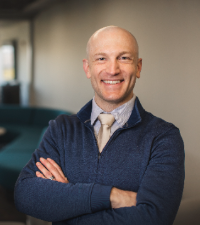PRESENTER: Benjamin DH Gordon, PhD, ACSM-CEP; University of Pittsburgh
BRIEF SUMMARY
Hypertension is a leading contributor to cardiovascular disease, yet many struggle to meet exercise guidelines to effectively manage blood pressure. This webinar will focus on isometric exercise training, a simple, low-cost, and evidence-backed strategy that may rival traditional aerobic and resistance exercise for blood pressure control. Attendees will explore key research and learn practical ways to integrate isometric training into clinical and community practice.
LEARNING OBJECTIVES
- Describe current exercise prescription guidelines for hypertension and identify barriers to adherence in clinical and community settings.
- Analyze evidence on isometric exercise training protocols, including their effects, populations studied, and physiological mechanisms.
- Apply safe and effective strategies for integrating isometric training into blood pressure management programs.
- Evaluate opportunities for combining traditional and non-traditional exercise methods to optimize hypertension treatment outcomes.
COST
CECs: 1 (one) CEC
RECORDING: This event will be recorded. Access to a recording of this event will be available to all who register for 3 months after the event.
ABOUT THE PRESENTER

Dr. Ben Gordon is an Assistant Professor in the Department of Health and Human Development at the University of Pittsburgh and an ACSM Certified Clinical Exercise Physiologist (CEP). His research centers on low-burden exercise and lifestyle interventions to reduce cardiovascular risk, with a particular focus on hypertension, sedentary behavior, and aging. He leads the Pittsburgh IsoTension Laboratory within the Physical Activity Research Center at Pitt. Dr. Gordon also explores how these strategies can be adapted for extreme environments, including spaceflight. In collaboration with a multidisciplinary team, he investigates isometric-based exercise as a method to preserve muscle mass and strength during prolonged bedrest, contributing to the development of countermeasures for long-duration space missions. He holds a B.S. in Exercise Science from Western Michigan University, an M.S. in Clinical Exercise Physiology from East Stroudsburg University of Pennsylvania, and a Ph.D. in Biological Sciences with a specialization in Exercise Physiology from the University of North Carolina at Charlotte..